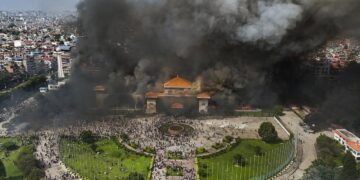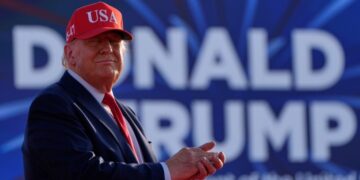Amid impasse, Pakistan Prime Minister Shebaz Sharif held talks with the head of the International Monetary Fund

According to media reports on Friday, Prime Minister Shehbaz Sharif called on IMF chief Kristalina Georgieva to break the deadlock over releasing the next tranche of aid to cash-strapped Pakistan.
The interaction came four days before a face-to-face meeting between the Prime Minister and the head of the International Monetary Fund on the sidelines of the Geneva Conference on Flood Victims.
There was no official word on the communication but sources told The Express Tribune that the prime minister had urged the IMF managing director to reconsider the conditionality of imposing new taxes.
He sought relaxation in the demand to hike power prices to cover the deviation of about ₹500 billion from the annual circular debt management plan.
These are major stumbling blocks in achieving initial understanding of the IMF staff-level visit to Pakistan.
“However, the government is ready to impose flood tax and windfall income tax on commercial banks,” the sources added.
There was a resolve on the part of Pakistan to increase energy prices against any further deviation in future. It was not immediately clear whether the IMF MD promised any concessions.
Pakistan and the International Monetary Fund held a round of engagement on November 18, but failed to finalize a schedule for formal talks on the delayed Ninth Review.
In August, the IMF board approved the seventh and eighth reviews of Pakistan’s bailout program, allowing the release of more than USD 1.1 billion.
The IMF’s much-needed bailout package helped Pakistan avoid imminent default amid lingering political uncertainty and devastating floods that displaced more than 33 million people.
With the economy under continued pressure, Chinese Premier Li Keqiang called on Beijing’s help to avoid a potential default when Army Chief General Asim Munir met the Saudi Defense Minister in Riyadh.
The correlations were made as official foreign exchange reserves fell to US$5.6 billion.
According to The Express Tribune, the Prime Minister’s call to the IMF chief indicated that the finance ministry had not been able to break the deadlock in the past three months.
In what appeared to be an alternative to the IMF, Finance Minister Ishaq Dhar expressed confidence a day earlier in securing a second bailout of US$3 billion from Saudi Arabia. Very low foreign exchange reserves. But the Saudi bailout cannot solve the problem permanently and can only delay normalization.
The finance minister had said that the government was committed to the IMF plan. But at the same time, he added, “we will not take steps that increase the burden on the common man.”
The IMF had earlier asked for a plan to end the additional ₹500 billion circular debt, raise energy prices, introduce new taxes, let the rupee regain its real value and meet primary budget surplus targets, excluding flood-related costs. According to The Express Tribune, this will fuel inflation, which is already at 25 per cent.
The donor revived a stalled US$6 billion loan program last year, which was initially agreed to in 2019 but was put on hold after Pakistan failed to implement its conditions.
















